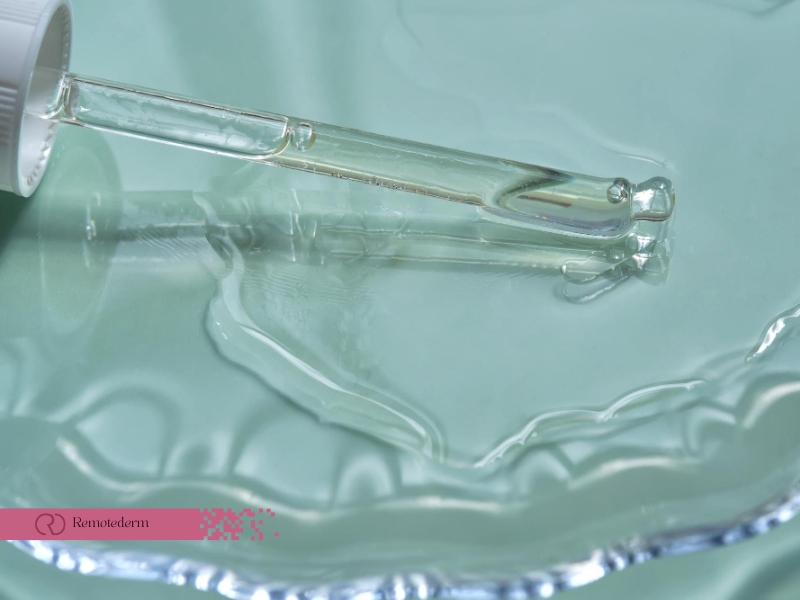Acne is a common skin concern, and finding an effective treatment can be challenging. One proven solution is salicylic acid for acne which remains one of the top-selling acne treatments. In this article, we’ll explore how salicylic acid works, its benefits, and how to use it for both acne and acne scars. We’ll also cover tips for applying it to back acne and explain why it’s a smart addition to your skincare routine, especially for those in Canada.
What is Salicylic Acid?
Salicylic acid is a BHA (Beta-Hydroxy Acid) that is an exfoliant, unblocking pores, and settles inflammation. The product is oil-based and thereby, it has access to the deeper skin areas which the experts say acne’s root causes.
Key Benefits
It is well known that salicylic acid is a classic example of deep pore cleansing through its action of sloughing off the outer layer of dead skin and eliminating potential sources of new acne breakouts. The anti-bacterial ingredients furthermore help to ease the skin’s redness thus hence it is very quite helpful in dealing with acne and subsequently keeping your pores clear.
Is Salicylic Acid Good for Acne Scars?
Salicylic acid has been found to be effective in fading acne scars (especially the superficial ones or those caused by post-inflammatory hyperpigmentation).
Benefits of Salicylic Acid for Acne Scars
Regular use of salicylic acid improves skin texture by making the surface smoother and helps to reduce dark spots by lightening the discoloration that acne leaves behind.
How to Use Salicylic Acid for Acne?
Salicylic acid is a suitable addition to your routine. This is how:
- Cleanse: Start with a mild cleanser.
- Apply: Use a product with 1-2% salicylic acid on the affected areas.
- Moisturize: Apply a non-comedogenic moisturizer.
- Sun Protection: Use sunscreen daily since salicylic acid can make you more sensitive to the sun.
- Start Slowly: Apply once daily at night and then, if your skin can take it, increase to twice a day.
Makeup for Covering Acne
When treating acne, you might want to cover blemishes. Here’s the right makeup for covering acne you can use to cover your imperfections without aggravating your condition.
Makeup Tips
The right makeup selection can serve as a cover for acne, yet it is also important to ensure that it does not result in further irritation or acne development. Follow these tips to keep your skin healthy while covering blemishes.
- Non-Comedogenic: Choose products that won’t clog pores.
- Oil-Free: Select oil-free foundations.
- Mineral Makeup: Consider mineral-based makeup for breathability.
- Proper Removal: Always cleanse thoroughly to remove makeup and prevent clogged pores.

How to Use Salicylic Acid for Back Acne?
Salicylic acid for “bacne” or acne on the back treatment is the one of the most effective management options for back acne.
Tips for Use
A salicylic acid body wash when used in the shower, can help in treating back acne, while spray application is a handy option for treatment on difficult areas. They should be used regularly for the best results.
If you have discovered that the over-the-counter treatments are ineffective for you, perhaps it is time to seek the advice of a dermatologist. In Canada, online dermatology services offer an easily accessible means for you to get professional advice along with a personalized treatment plan that is specially designed for you.
Why Consult a Dermatologist?
The dermatologist can precisely diagnose your skin condition and ensure that you follow a highly effective treatment plan which includes the products that won’t aggravate your acne.
- Convenience: Consult with professionals in the comfort of your home.
- Tailored Advice: Get specific recommendations; based on your skin type and acne severity.
- Prescription Options: A dermatologist can prescribe stronger treatments if necessary.
Services offering online acne dermatology in Canada provide a convenient and effective way to manage acne without the need for in-person appointments, especially if you’re in a remote area or prefer virtual consultations.
Final Thoughts
Salicylic acid is a proven treatment for acne and acne scars, offering deep cleansing, reduced inflammation, and improved skin texture. Whether dealing with facial or back acne, incorporating salicylic acid into your routine can lead to significant improvements. If over-the-counter treatments don’t provide the desired results, consider consulting an online acne dermatologist in Canada for personalized advice. Use acne-friendly makeup to maintain confidence as your skin heals.
FAQs
Is salicylic acid safe for sensitive skin?
Yes, be sure to start with a lower concentration and do a patch test first to avoid any irritation. Your skin will gradually adapt to the product and you can use it more frequently.
Can dryness be a side effect of salicylic acid?
Sure, it may lead to dryness or peeling. Hence, a moisturizer should be used afterward. Choose a moisturizer that is both hydrating and non-comedogenic to avoid blocking your pores.
Can I use salicylic acid with other acne treatments?
Yes, but do not mix various strong treatments such as retinoids without first checking with your dermatologist. The reason is that mixing a lot of active ingredients can make the skin very dry or cause irritation.
How long before seeing results with salicylic acid?
The common time frame for improvement is 4-6 weeks of regular treatment. However, results may differ based on the level of your acne.
